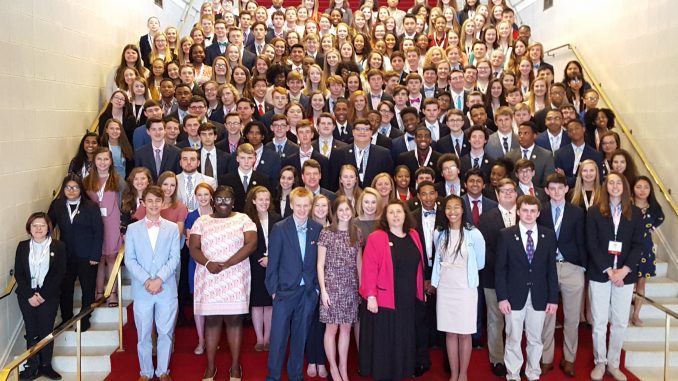
RALEIGH — The N.C. Youth Legislative Assembly was held last weekend in Raleigh bringing students from across the state to a mock legislative session. During the event, high school students voice their opinions and vote on issues concerning local, state and national government. The three-day session is patterned after the N.C. General Assembly. A final report is drafted and distributed to the governor and legislators.
Youth legislators met with elected officials, attended mock committee hearings and passed legislation. This year, students passed 10 bills and a resolution to honor the late Rev. Billy Graham. Almost 200 students attended the three-day event representing 40 counties. About three-quarters of the students came from traditional public schools with almost 15 percent coming from public charter schools and the remaining 10 percent from private high schools and home schools.
“North Carolina’s Youth Legislative Assembly offers students a unique opportunity to learn first-hand about the legislative process and to develop leadership skills that will help them succeed in life,” said Senate President Pro Tempore Phil Berger and House Speaker Tim Moore in a joint statement. “We are proud to continue this long tradition of helping prepare our state’s future leaders.”
The youth event has had success in moving the needle in the real legislature. In 2016, the Youth Legislative Assembly passed a bill to raise the age at which a youth could be tried as an adult. In 2017, the N.C. General Assembly voted to raise the age.
Students passed a bill to help tackle the opioid crisis through additional electronic reporting, and a business-related bill sought to ban noncompete agreements for workers who make less than $15 per hour or less than $31,000 per year. They also sought to abolish high school class rankings and to require more reporting on steps to protect the environment.
“This event brings students together from across North Carolina to help prepare them to be leaders for our future,” said Rep. Jason Saine (R-Lincoln). “I hope the program continues to grow and that students use this experience to better their communities and our state.”



